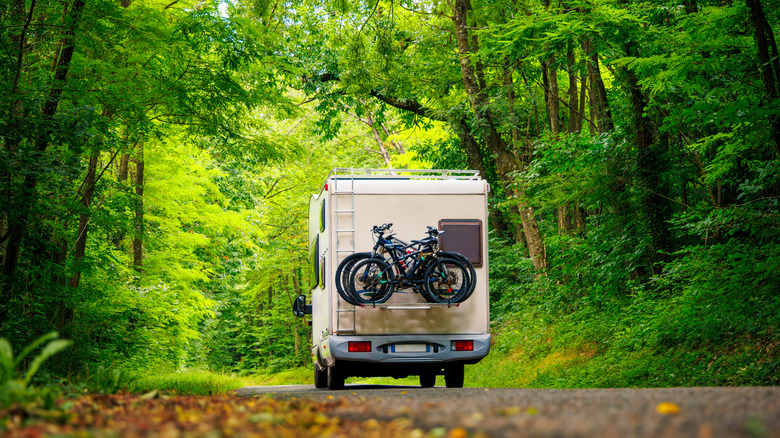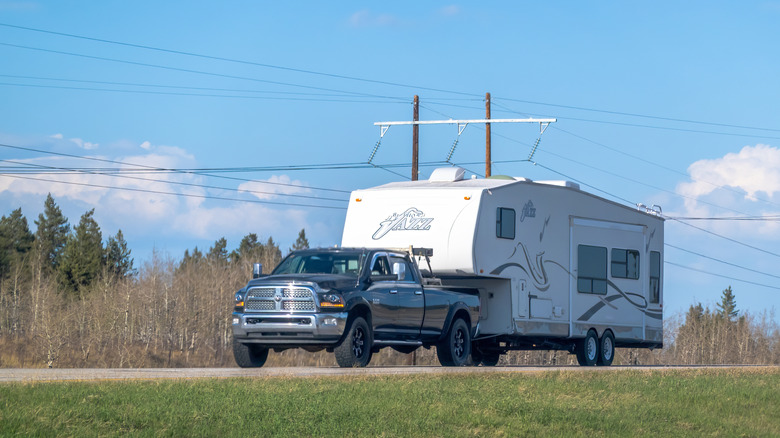This Common Insurance Mistake Has Left RV Owners With Sky-High Repair Bills (Here's How To Avoid It)
Hitting the road in a recreational vehicle (RV) could be the best vacation decision you make, whether you're taking a short trip or planning to travel by road indefinitely. RVing can be a convenient way to bring your home with you while you explore. Still, there's a lot to know about recreational vehicles and how to make the most of a trip, from following special RV rules for safe trips and knowing where you can bunk down for the night without risking getting a parking ticket.
Although convenient, it turns out that combining your sleeping and living quarters with your vehicle can complicate things when it comes to insurance. In fact, the wrong RV policy could add thousands of dollars — or more — to your next road trip. With some preparation, though, you can avoid sky-high repair bills and focus on enjoying your travels.
It's not just road hazards you have to worry about with an RV, whether you're driving a motorhome or towing a fifth wheel or travel trailer. Living in an RV can be dangerous, and even short trips can also involve risks. Camping, in general, comes with hazards such as cooking over open flames and exposure to wildlife, and the same applies to RVing. From mechanical failures to kitchen fires, any number of issues can crop up while you're on the road. A simple solution to managing those risks without draining your bank account is to purchase the right insurance policy — and read the fine print, too.
Avoid high repair bills by choosing the right RV insurance
Depending on what type of recreational vehicle you own, your standard auto policy may provide some coverage. For example, if you own your travel trailer or fifth wheel outright, a secondary policy (in addition to tow vehicle coverage) may not be required by law. However, most states mandate at least liability insurance for vehicles that operate under their own power, such as motorhomes. Like any other financed vehicle, an RV is also subject to the insurance requirements of the lender for as long as you're making payments.
Even if you live in a state with few insurance requirements, or your RV is fully paid off and not subject to lender rules, it's still smart to purchase a policy that fits your needs. After all, RV repairs can be exceedingly pricey, ranging from $500 for a stuck slide-out to $12,000 to fix a leveling jack, and tens of thousands of dollars for engine and transmission work on motorhomes. By comparison, an RV insurance policy could cost you as little as $1,500 for a full year, depending on factors like your driving record, the type of recreational vehicle you own, and available discounts.
Keep in mind that costs may be higher if your RV is newer, especially it falls into the luxury class. There's also the fact that, as with a car or home, RV insurance rates can vary based on what equipment is on board. And while taking steps to theft-proof your RV is always a good idea, the right policy can help cover the unexpected. In the end, insurance is a small price to pay to avoid huge repair bills and the stress that comes with them.

